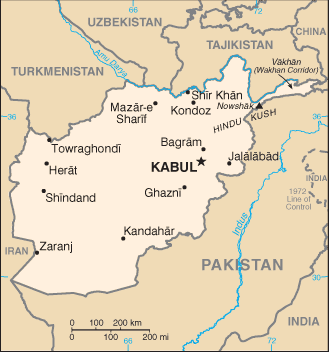Following yesterday’s claims by the Afghan government that Taliban leader Mullah Omar died back in April 2013, the Taliban has confirmed his death, albeit without a date attached to it, and is saying his former aid Mullah Mansour has been unanimously elected as his successor. Sirajuddin Haqqani was said to have been appointed as Mansour’s new deputy.
 The Quetta Shura, the Taliban’s leadership council, is expected to issue a more formal statement in the near future, but in the meantime, the peace talks being hosted by Pakistan and China are indefinitely on hold, with Pakistan explaining the delay as the result of the leadership change.
The Quetta Shura, the Taliban’s leadership council, is expected to issue a more formal statement in the near future, but in the meantime, the peace talks being hosted by Pakistan and China are indefinitely on hold, with Pakistan explaining the delay as the result of the leadership change.
Taliban members speaking to the press are giving the impression Mansour was just recently elected by the Quetta Shura, which would suggest that either Mullah Omar’s death was more recent than the Afghan government claimed, or that there had been a leadership vacuum for some time. Statements bearing Mullah Omar’s name had been released as recently as this month, adding to the confusion.
Pakistan’s Foreign Ministry similarly said they could not confirm the timing of Mullah Omar’s death, which Afghan officials claimed occurred in a hospital in the Pakistani city of Karachi. The US said only that they’d believed he was sick for quite some time.
Assuming Mullah Mansour is able to assume his leadership position with relatively few challenges, he will likely be under pressure, particularly from Pakistan, to return to the peace process with the Afghan government. The Taliban is expected to secure considerable concessions in the talks, likely including a power-sharing deal over some of the provinces along the Afghan-Pakistan border.


